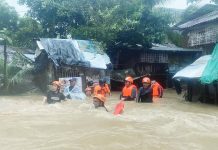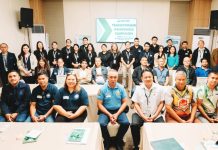 RIVERS, lakes, and other freshwater environment supply the water we need for drinking, growing crops, producing energy, manufacturing, and transport.
RIVERS, lakes, and other freshwater environment supply the water we need for drinking, growing crops, producing energy, manufacturing, and transport.
However, freshwater environments have been mismanaged, which leads to pollution, drying rivers, and damaged habitats.
Rivers and lakes store and clean the water which is crucial for the people and wildlife.
But people have been remiss with this very importance resource, causing loss to many wetlands and home to wildlife.
Anchored on protecting our freshwater environments, the Mindanao State University-General Santos City (MSU-GSC), in collaboration with the Philippine Council for Agriculture, Aquatic and Natural Resources Research and Development of the Department of Science and Technology (DOST-PCAARRD), conducted the first-ever Mindanao Lakes and Rivers Summit in General Santos City recently.
The summit aims to provide initial mobilization framework to present the conservation and management status of their respective freshwater ecosystems to niche scientists and researchers studying limnology (lakes) and potamology (rivers), and to relevant local government units (LGUs) and government agencies in Mindanao.
Spearheading the summit themed “Mainstreaming Biodiversity Conservation and Management of Lake and River Ecosystems in Mindanao” was Dr. Jaime Namocatcat, summit convenor and project leader of DOST-PCAARRD Lake Sebu Project.
The activity gathered 57 participants from the academe, different government agencies, non-government organizations, private sectors, and LGUs.
Dr. Reynaldo V. Ebora, PCAARRD acting executive director, says the conduct of the activity was an opportune time to disseminate current researches, share experiences on Mindanao lakes and rivers, and organize a consortium to advance and sustain freshwater ecosystem conservation and management in the region.
In the summit, Ebora emphasized that pollution, siltation, and overfishing were among the major problems affecting the conservation of our freshwater ecosystems.
Unabated release of mine tailings and the heavy erosion of watershed areas had also greatly contributed to the deterioration of rivers in many areas of the country.
The activity was followed by the signing of the summit declaration during the fellowship night and a post-summit eco-tour of Lake Sebu, Lake Seloton, Lake Lahit, and the Seven Falls in Lake Sebu, South Cotabato.
MSU-GSC campus associate professor Dr. Camille B. Concepcion-Silvosa presented and synthesized the outputs of the activity.
She emphasized the importance of working together to achieve tangible, measurable outputs, the need to be empowered and empower partners and use each other’s expertise, background and biases, and the need to promote and reinforce relationships with different government agencies such as the DOST, DENR, Environmental Management Bureau (EMB), Bureau of Fisheries and Aquatic Resources (BFAR), LGUs, and academic institutions to move onward together to further aquatic sciences and limnology in the Philippines, particularly in Mindanao.
Preserving the lakes and rivers and protecting them is the key to food security and goes beyond economic benefits.
Wetlands and lakes also provide important flood protection, meaning, we could not manage without them.
It is hoped that all the visuals and knowledge gained from the summit inspire the participants to work continuously for the conservation of lakes and rivers not only in Mindanao but also in the whole country. (jaypeeyap@ymail.com/PN)






